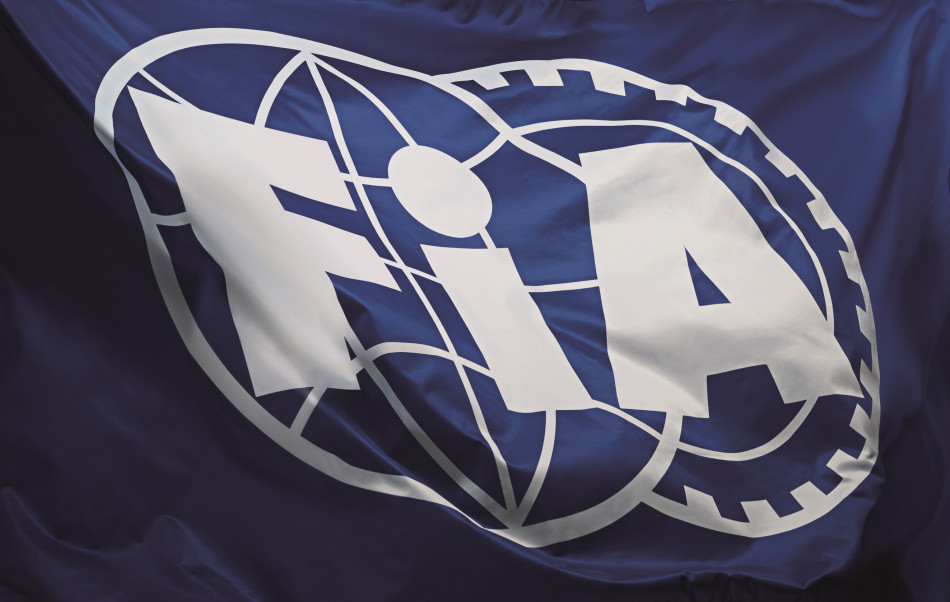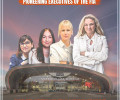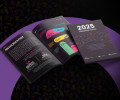FIA ANNOUNCES WORLD MOTOR SPORT COUNCIL DECISIONS
Hosted by FIA President Jean Todt and FIA Deputy President for Sport, Graham Stoker, the World Motor Sport Council gathered today in Paris for its second meeting of 2019, attended for the first time by Jorge Viegas, President of the Fédération Internationale de Motocyclisme (FIM).

The following is a summary of the meeting and the main decisions taken:
FIA Formula One World Championship
The Council was updated with the current status of the draft 2021 Sporting, Technical, Financial and Governance Regulations for the FIA Formula One World Championship, following yesterday’s meeting between key stakeholders and announcement that the full presentation and deliberation by the Council will take place before the end of October 2019.
While the core objectives outlined for the future set of regulations of the championship have been defined, in the interests of the sport it was agreed that the best outcome will be achieved by using the extra time for further refinement and additional consultation.
FIA World Endurance Championship
The 2020 LMP Technical Regulations have been expanded to a “Hypercar” developed from the road cars sold by the manufacturers, of which a minimum of 20 road models must be produced over a two-year period, in addition to the amended prototype regulations approved by the Council of 5 December 2018. The regulatory format of the approved Regulations has been preserved. This expansion will enable additional manufacturers to enter the championship. Additionally, the implementation of Balance of Performance (BoP) will enable the different types of cars to compete on the same level.
The general principles for these 2020 regulations are as follows:
- The introduction of the new Technical Regulations is scheduled for September 2020 for five championship seasons.
- Two types of cars (prototypes and hypercars) designed in the same class,
- The performance windows established and confirmed at the time of homologation will ensure cars have comparable performance levels.
- The performance target is 3’30” (race average) at Le Mans.
- The hybrid system would not be mandatory.
- No fuel flow and Brake Specific Fuel Consumption (BSFC) limitation
- Control tyres (one manufacturer with a limited number of different sizes to cope with different weight distributions).
- General safety as per current LMP rules.
The 2019-2020 season calendar has been updated as shown in bold:
1 September 2019 | 4 Hours of Silverstone | Great Britain |
6 October 2019 | 6 Hours of Fuji | Japan |
10 November 2019 | 4 Hours of Shanghai | China |
14 December 2019 | 8 Hours of Bahrain | Bahrain |
1 February 2020 | 6 Hours of São Paulo | Brazil |
20 March 2020 | 1000 Miles of Sebring (8 hours) | USA |
2 May 2020 | 6 Hours of Spa-Francorchamps | Belgium* |
13-14 June 2020 | 24 Hours of Le Mans | France |
* Subject to ASN confirmation
FIA World Rally Championship
The Council approved the introduction of a new generation of WRC cars in 2022, with a five-year homologation cycle. Manufacturers will be allowed to use a production bodyshell or a prototype tubular structure to current WRC size guidelines, while the FIA is set to define carry-over elements from production vehicles for key visual elements. There will also be an option for ‘scaling’ of the body within prescribed limits, to allow larger cars to comply with dimension targets.
The cars will feature a supplementary hybrid system, to be comprised of common components and software for the first three years, with the potential for more technical freedom in 2024. The aim is to enable the cars to run on pure electric power in cities and provide an electric power boost on special stages.
A tyre tender covering all championship classes with 4WD cars will be issued for the period 2021-2024, helping to reduce costs by preventing an escalation in tyre development.
The Junior WRC programme will continue in its current format for the next two seasons. In addition to the existing prize structure of a Ford Fiesta R5 plus a support package to compete in WRC2, the 2020 winner would benefit from a potential path to WRC. Contingent upon then winning the WRC 2 Championship, the Junior WRC title-winner would have the opportunity to compete in two WRC outings in an M-Sport run car. To support this programme, M-Sport, in conjunction with Pirelli, has developed a national ‘feeder’ programme across Finland, the United Kingdom, Estonia and Italy that will allow them to step up into the world stage the following season.
The Council approved the long-term extension of the current Promoter, subject to a long-form agreement being signed.
Approval of the 2020 FIA World Rally Championship calendar was deferred to the end of June 2019. In the intervening period it will consider the potential rotation of competitions.
FIA World Rallycross Championship
The Council approved the revised roadmap for the Electrification of the FIA World Rallycross Championship in 2021. This will be focused on the current private teams and the use of current Supercars. A gradual introduction will see a mix of EVs and current ICEs for a minimum of one year (2021). An identical specification powertrain and battery kit is to be introduced for a four-year cycle, comprising two motors developing between 400 and 500 kW.
To continue the diversification of the FIA electric portfolio, an FIA Junior eRX Championship will be created for 2021, based on an arrive and drive format, and with 4WD cars developing approximately 250 kW.
Three tenders will be launched for the supply of a retrofit electric kit for current Supercars, a Junior eRX Championship car and operator, and a charging infrastructure for both the electric World Championship and the Junior eRX Championship. Each tender covers a four year period and potential suppliers can respond with bids for more than one tender.
The European Championship will continue with the existing Supercar and S1600 categories.
FIA Formula E Championship
The 2019/20 ABB FIA Formula E Championship calendar was approved as follows:
22 November 2019 | Saudi Arabia | Ad Diriyah** |
23 November 2019 | Saudi Arabia | Ad Diriyah |
14 December 2019 | TBC | TBC |
18 January 2020 | Chile | Santiago de Chile* |
15 February 2020 | Mexico | Mexico City* |
01 March 2020 | China | Hong Kong* |
21 March 2020 | China | TBC* |
4 April 2020 | Italy | Rome |
18 April 2020 | France | Paris |
3 May 2020 | South Korea | Seoul* |
30 May 2020 | Germany | Berlin |
20 June 2020 | USA | New York |
25 July 2020 | United Kingdom | London* |
26 July 2020 | United Kingdom | London* |
* Subject to circuit homologation
** Double-header subject to government agreement
The following changes to the Sporting Regulations were approved:
- During a race suspension, the timekeeping system will stop, unless otherwise announced by the Race Director, with the aim of completing the full race time
- The fastest driver in the qualifying group stages will score one championship point
- Maximum power output of the RESS will increase from 225kW to 235kW in Attack Mode
- Activation of Attack Mode will be forbidden during Full Course Yellow and Safety Car periods
- For each minute spent under Full Course Yellow or Safety Car conditions, 1 kWh will be subtracted from the total available energy measured from the point at which the race was neutralised
- The homologation cycle for the Gen2 car will be extended to include season eight for reasons of cost control and to account for new manufacturers entering in season six. This decision does not exclude the following potential updates:
- Power increase
- Battery performance improvement
- Design evolution
A modification to the Technical Regulations was also approved, reducing the maximum number of MGUs (rotating electromechanical power converters) from two to one.
FIA F3 World Cup
The 2019 FIA F3 World Cup Sporting Regulations were approved.
The complete regulations are available on www.fia.com
FIA Rally Commission
The format of the FIA African Rally Championship will be changed to encourage the entry of Group N cars through the creation of an ARC2 title, and to promote young drivers through the creation of an ARC Junior title. Changes to the event characteristics will limit the duration of a rally to four days, with the layout now including a qualifying stage to define the Day 1 starting order.
FIA Closed Road Commission
The regulatory text of Appendix H has been amended in line with the recently published Rally Safety Guidelines, to ensure the implementation of best practice on rally events.
FIA GT Commission
The Sporting Regulations for the 2019 FIA GT World Cup in Macau were approved, with the pre-entry procedure opening at the end of June.
Additionally, various proposals regarding the GT3 Technical Regulations and Homologation Procedures were approved.
FIA Drifting Commission
The Sporting Regulations for the 2019 FIA Intercontinental Drifting Cup at Tsukuba Circuit in Japan were approved. The regulations incorporate a new event format, which will give drivers who performed poorly in qualifying a second chance to proceed to the final. Entries are currently open and will close mid-August.
Touring Car Commission
The Council approved a general outline of the 2020 Technical Regulations for the FIA Entry Level Touring Car Class.
FIA Hill Climb Commission
A Technical Appendix to the Sporting Regulations of Hill Climb that determines the eligibility criteria for closed cars was approved. This regulatory reform, to be implemented as from 2020, is being aligned with the “Performance Factor” project, a new method of classification for cars, which is currently being trialled in the FIA European Hill Climb Championship.
Further details are available on www.fiaperformancefactor.com
FIA Safety Commission
Appendix L – Chapter 1 “FIA International Drivers’ Licences” – Article 5 “Qualification and conditions of issue for the Super Licence” has been updated with changes and to provide further clarification of the eligibility criteria, as follows:
The championships concerned must be composed of a minimum of 5 competitions, the definition of a competition requiring that a minimum of 72 hours has elapsed between the end of one competition and the start of the subsequent competition.
As part of the requirement for the championship to be held on three different tracks, any alternative circuit configuration recognised and licensed by the FIA may be considered to be a track for these purposes.
Effective 1 January 2020, a Free Practice Only Super Licence holder will be granted one additional point per FIA Formula One World Championship event following successful completion of at least 100 km during a free practice session, provided that no penalty points were imposed. A maximum total of 10 such additional points may be awarded per driver for free practice sessions over a three year period.
The results from a maximum of two championships can be accumulated from a single calendar year, provided that the start of the second championship falls after the end date of the first championship during the year in question.
The new W Series and also the Euroformula Open series will be recognised and eligible for points from 2020.
FIA Motorsport Games
The Council approved the ‘FIA Motorsport Games’, a new international, multidisciplinary sporting event that will see drivers competing not for individual recognition, but for their country. Taking place annually, the Games will initially feature six categories: GT, Touring Car, Formula 4, Drifting, Karting Slalom and Digital Motorsport. Each competition will award Gold, Silver and Bronze medals, contributing to an overall medal table.
The inaugural edition of the Games will be held from 31 October to 3 November 2019 in Rome.
All relevant Sporting Regulations were approved.
FIA Ethics and Compliance
The FIA Ethics and Compliance hotline is the reporting channel that will be implemented in the forthcoming months for processing and investigating allegations of misconduct.
Next Meeting
The next meeting of the World Motor Sport Council will be held on 4 October 2019 at the Permanent Exhibition of the Michael Schumacher Private Collection, MOTORWORLD, Cologne, Germany.

 Facebook
Facebook Twitter
Twitter






